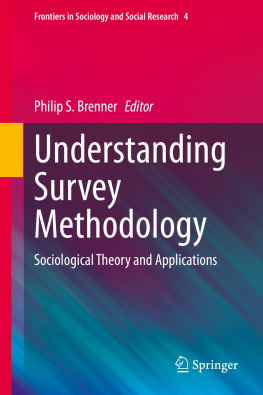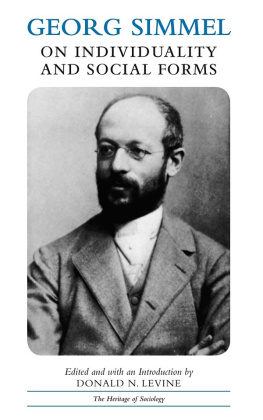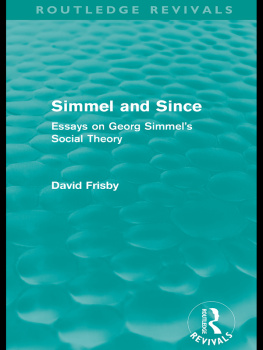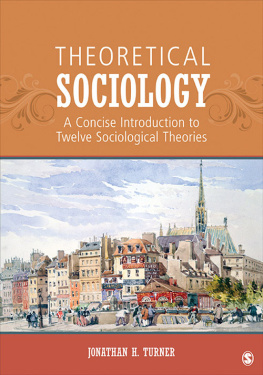First published 2019
by Routledge
2 Park Square, Milton Park, Abingdon, Oxon OX14 4RN
and by Routledge
711 Third Avenue, New York, NY 10017
Routledge is an imprint of the Taylor & Francis Group, an informa business
2019 Gregor Fitzi
The right of Gregor Fitzi to be identified as author of this work has been asserted by him in accordance with sections 77 and 78 of the Copyright, Designs and Patents Act 1988.
All rights reserved. No part of this book may be reprinted or reproduced or utilised in any form or by any electronic, mechanical, or other means, now known or hereafter invented, including photocopying and recording, or in any information storage or retrieval system, without permission in writing from the publishers.
Trademark notice: Product or corporate names may be trademarks or registered trademarks, and are used only for identification and explanation without intent to infringe.
British Library Cataloguing-in-Publication Data
A catalogue record for this book is available from the British Library
Library of Congress Cataloging-in-Publication Data
A catalog record has been requested for this book
ISBN: 978-1-138-28183-7 (hbk)
ISBN: 978-1-315-27093-7 (ebk)
Typeset in Times New Roman
by Apex CoVantage, LLC

Routledge Advances in Sociology
Practicing Art/Science
Experiments in an Emerging Field
Edited by Philippe Sormani, Guelfo Carbone & Priska Gisler
The Great Transformation
History for a Techno-Human Future
Judith Bessant
Occupying London
Post-Crash Resistance and the Limits of Possibility
Sam Burgum
Populism and the Crisis of Democracy
Volume 1: Concepts and Theory
Edited by Gregor Fitzi, Jrgen Mackert and Bryan S. Turner
Populism and the Crisis of Democracy
Volume 2: Politics, Social Movements and Extremism
Edited by Gregor Fitzi, Jrgen Mackert and Bryan S. Turner
Populism and the Crisis of Democracy
Volume 3: Migration, Gender and Religion
Edited by Gregor Fitzi, Jrgen Mackert and Bryan S. Turner
The Challenge of Modernity
Simmels Sociological Theory
Gregor Fitzi
The World Multiple
Everyday Politics of Knowing and Generating Entangled Worlds
Edited by Keiichi Omura, Grant Jun Otsuki, Shiho Satsuka, Atsuro Morita
For more information about this series, please visit: www.routledge.com/Routledge-Advances-in-Sociology/book-series/SE0511
Contents
Guide
Gregor Fitzis book persuasively shows the unity and continuity in Simmels thought, whereas often his work has been interpreted as a succession of different phases of development (positivism, neokantianism, philosophy of life) or artificially divided in disciplinary boundaries (sociology, philosophy). The new generation of Simmel scholars is now ready to give up these artificial distinctions which deprives sociological imagination from the stimulus coming from art and metaphysics. A closer scrutiny of Simmels sociological theory-building demonstrates that his work takes the form of an ongoing widening of the enquiry into social reality starting from the analysis of the societal issues in a narrower sense, moving to their socio-cultural implications and premises, and finally turning to the anthropological roots of societal phenomena.
Vincenzo Mele, editor of the Simmel Studies
As a motto for a presentation of Simmels sociology, I had always imagined the quote: For the social researcher or politician, human is not a problem at all, only humans. Gregor Fitzis book gives a decisive insight into the way Simmel deals with the problem.
Otthein Rammstedt, editor of the Collected Works of Georg Simmel
Gregor Fitzi is undoubtedly one of the best connoisseurs of G. Simmels thought and work. His book, which can rely on the edition of the complete works to which he contributed is timely. The presentation of the themes is pedagogical, clear and fluid without abandoning anything of the subtlety of the Simmelian theses; whether they relate to modernity, the philosophy of life, culture or sociology. The Challenge of Modernity will be an invaluable text to the reader interested in the field of sociological theory; whether student, teacher, researcher or public citizen.
Patrick Watier, University of Strasbourg
4
Sociological anthropology
The later phase of Simmels scientific work has conventionally been explained as a product of his interest in the intellectual vogue of the philosophy of life, which was a cultural phenomenon during the Belle poque and circulated widely in Paris and as far as Germany (Rickert 1920). Simmel was interested in Schopenhauers and Nietzsches philosophy of life. In 1907, he wrote a monograph about their philosophical conceptions (GSG 10: 167408), and he played a decisive role in the introduction of Bergsons philosophy in Germany by organising an authorised translation of his works (Fitzi 2002: 195 ff.). Simmels final book, The View of Life (Lebensanschauung) (GSG 16: 209425; Simmel 2015), was a contribution to the epistemological paradigm of the philosophy of life. However, it was also designed as a critique of the mono-dimensional orientation of life philosophy that derives all existence from the idea of the eternal flow of the stream of consciousness (Fitzi 2002: 265 ff.). Hence, Simmels philosophy of life presented itself as an alternative to Bergsons conception of dure as being the common denominator between consciousness and the natural world and instead taking as a starting point the historical fact that modernity and modern consciousness could only be explained as solid liquidity, i.e. as a dialectic between the liquefaction and reification of social structures as well as of the personality of the social actors (Fitzi 2016).
From the perspective of sociological theory, however, Simmels late reflection has a broader meaning. His sociology of culture provided several case studies about the different a priori of sociation orienting social action in the various domains of culture that characterise modern societies. Specific attitudes to life and the world came to the fore that can potentially shape the entirety of the contents of experience from a particular viewpoint, for instance creating an economic, political, religious, artistic or erotic world. Yet, the domains of culture also evidenced a strong tendency to autonomisation by developing an innate logic, by flowing into reification and imposing their rules on the creativity of social action. This twofold assessment was a stocktaking of the structural tendencies of modern societies which Simmel resumed within the theory of the conflict between objective and subjective culture (GSG 5: 560582). In direct contrast, however, the theory of the sociological a priori, i.e. of the conditions permitting the coordination of social structure and social action in everyday social life, showed that only by
The theoretical challenge of sociological anthropology was to explain how tough social action could arise in a world of manifold qualitative differentiated societal domains, whose fragmented contents eventually had to be linked again within one meaningful synthesis by the creativity of social action in order to realise the requirements a priori that permit sociation. The ongoing change of modern social reality had to be understood in a contextual way with the processes characterising its condensation in social forms and then explained from the perspective of the specific human approach to the world. Accordingly, it was necessary to develop a theoretical foundation project that was capable of linking together the different theoretical strands that Simmel provided in the sociological epistemology and in the theory of qualitative differentiated society. Because of his premature death, Simmel could not advance his late research project as much as he had intended to, yet The View of Life (Lebensanschauung) (GSG 16: 209425; Simmel 2015) gives an idea of what it had possibly become, as Kantorowicz writes in the introduction to Fragments from the Estate (1923; GSG 20: 473479). Since the spring of 1918, Simmel had known that he was seriously ill. He put all his energies into writing the first chapter of his final book, which was to introduce and unite his further studies on the development dynamics of life and culture and on the principles of social ethics. He had already published these between 1910 and 1916 in Logos , the leading journal of the day for the cultural sciences that was edited in Heidelberg by Rickerts pupils (Kramme 1995). However, he modified and consistently extended them for the monograph (GSG 16: 236, 438).







